One of the many delightful discoveries in this dynamic, imaginative lunchtime concert was that Handel and Telemann had a thing for sending each other flowers. Not bouquets, but earthy bulbs and tubers, “I am insatiable where hyacinths and tulips are concerned, greedy for ranunculi, and especially for anenomes,” Telemann wrote.
Taking the theme of “New Beginning”, Ensemble Augelletti (pictured below right by Abe Kleinman) explored the relationships between Handel and his contemporaries as they used different compositional styles to create fresh settings for themes from their own or other composers’ works. Another way to describe it might be musical recycling, as, for instance, Handel raided his operas for themes that turned up in trio sonatas or Vivaldi turned to the famous chord progressions of La Folia to produce a set of intoxicating variations.
The concert’s concept wasn’t just a nice way of framing a relatively well-known phenomenon, it also encouraged audience members to listen more dynamically as it subtly interrogated each composer’s working methods. This in turn brought a wit and energy to proceedings that helped explain why Ensemble Augelletti has been selected by BBC Radio 3, the Royal College of Music and the National Centre for Early Music as the New Generation Baroque Ensemble for 2023-25.
In the exquisite surroundings of the 17th century Charterhouse Chapel, the ensemble began with Handel’s Trio Sonata in C major, HWV 388, which shares a theme with his 1718 oratorio Esther (performed at the start of this year's London Handel Festival and reviewed here by David Nice). Immediately there was a sense of light and elegance as Olwen Foulkes (recorder) and Ellen Bundy (violin) took turns to play the melody for the Andante, skimming motifs backwards and forwards to each other as if they were in some musical relay race. Foulkes quickly asserted the thrilling bird-like clarity that marked her performance throughout, while Bundy responded with a delivery that was as rich as it was nuanced.
I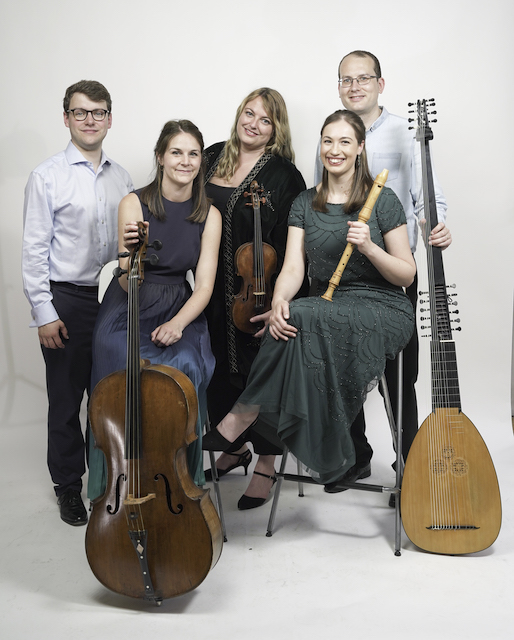 n the nimble Allegro the echoes between the two became more intense, as technically giddying flourishes on the recorder were interspersed with rapid arpeggiated passages from the violin. Benedict Williams provided a harmonic foundation on the harpsichord that glimmered like wrought silver, while Toby Carr made the delicate lute harmonies gleam like rain drops on a spider’s web.
n the nimble Allegro the echoes between the two became more intense, as technically giddying flourishes on the recorder were interspersed with rapid arpeggiated passages from the violin. Benedict Williams provided a harmonic foundation on the harpsichord that glimmered like wrought silver, while Toby Carr made the delicate lute harmonies gleam like rain drops on a spider’s web.
Maybe it was something to do with the vision of Telemann with dirty hands, salivating over his latest parcel of bulbs from Handel, that made his Trio Sonata in B minor TWV 42:h3 particularly stand out from this repertoire. Following the intense beauty of the opening Grave movement, in which we were beguiled once more by the conversation between the violin and recorder, the Vivace introduced a giddy whirligig energy that was heightened by Williams’ dexterous keyboard work. Then we were into the fantastic Adagio e staccato, in which the stately dotted rhythms were repeated to build a sense of tension. A full-blooded Allegro assai sped us to the resonant conclusion.
Appropriately for this amuse bouche for the 2024 London Handel Festival we were back to the man himself for the Trio Sonata in F Major, Op 2 No 4. After pointing out that the theme for the third movement was taken from his opera Rodelinda, the ensemble performed the opening Larghetto with a steady unfurling energy that made it feel as if we were watching a time-lapse image of a flower opening up. Here Carina Drury on the cello particularly drove the powerful sense of harmonic progression. After a romp through the Allegro, the swooning mournful Adagio once more owed much of its tension and drama to the cello. While the spun glass textures of the lute and harpsichord elevated the penultimate Allegro, it was the recorder and violin who gave the final Allegro lift off, with scurrying triplets in which they perfectly matched each other note for note.
A short detour to Italy came with their performance of Francesco Geminiani’s lyrical, pastoral The Last Time I Came O’er the Moor, before they took on Handel’s old rival Bach. The Trio Sonata in G minor which they performed was originally written for viola da gamba with an obbligato for harpsichord, but here it was performed by the entire Ensemble with a character and richness that at times seemed to prefigure the Brandenburgs.
The lively finale came with Vivaldi’s exuberant dazzling variations on La Follia in his Trio Sonata in D minor. At times the music seemed to bubble over like a fountain, at others it was an earthy foot stamping dance. As throughout it demonstrated the ensemble’s equal capacity for elegant pathos and rip-roaring technical dexterity. This lunchtime concert proved to be hopefully one of many highlights in a festival which – like last year – promises to be a revelatory and provocative take on a composer with whom many of us only think we are familiar.

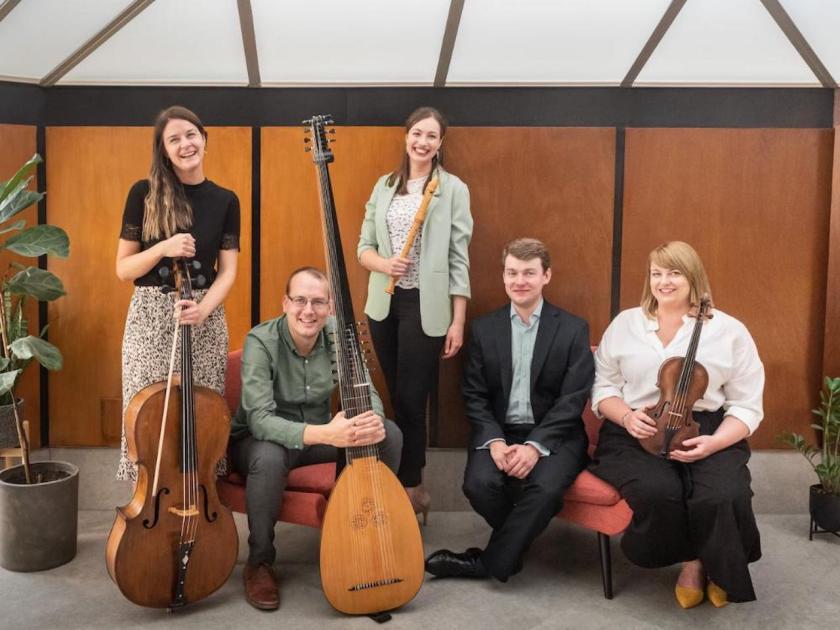

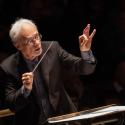



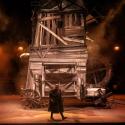
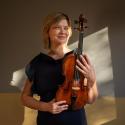
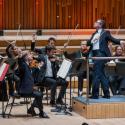

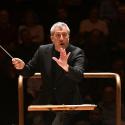
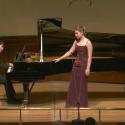
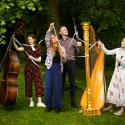
Add comment